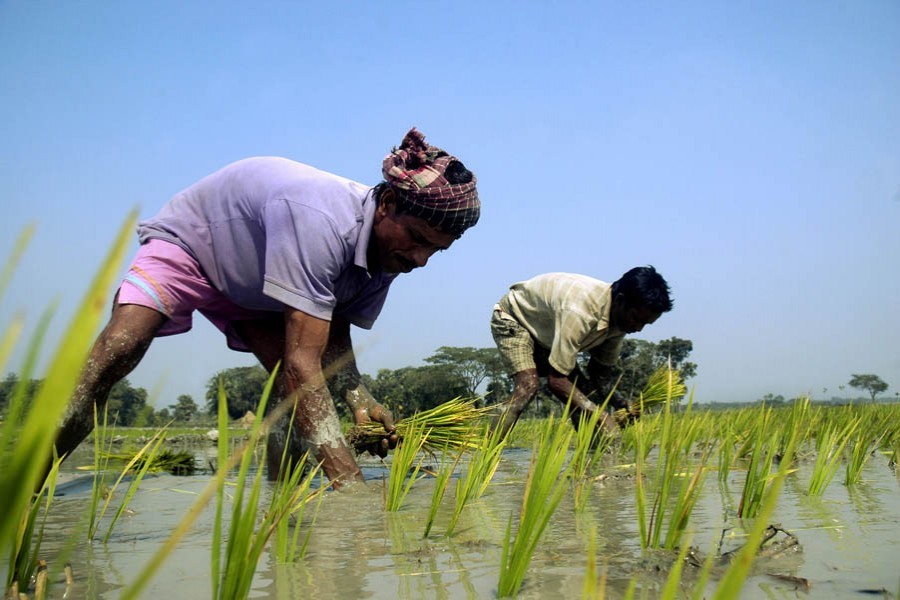The Bangladesh Krishi Bank (BKB) has a plan for disbursing loans among small and marginal farmers including small rural entrepreneurs under a Tk 100 billion credit programme. If things go according to the plan, the long-term credit scheme will take off on March 17 next year. The professed objective sounds highly rational. People at the bottom rung of society with little or no access to institutional credit facilities are the target here. However, there is a segment of society which has not been considered for any credit so far - not even by the non-government organisations (NGOs) working with the rural poor -- because of lack of collateral. These are the extreme poor who have no asset to produce as collateral and are therefore left out of any credit programme. Can the BKB reach out to this section of credit-unworthy people?
It is a tough call for any development practitioner to devise an inclusive credit model where these left-out people can find a place. Since the avowed aim of the BKB is to narrow down the rising inequality in society, devising a mechanism for bringing such people under a credit programme may help. However, it is not absolutely necessary if the credit programmes are used for creating employment opportunities for them. At this point, however, the BKB finds itself in an advantageous position. Of the 1,038 branches it has, 85 per cent are located in rural areas at the union level. If the NGOs with atrociously high rates of interests can successfully operate their credit programmes among villagers, women in particular, the BKB with much lower rates of interest is expected to come out in flying colours provided that it identifies the areas of credit uses prudently.
The BKB's advantages in terms of the location of its branches are also its disadvantages in another sense. Deposit at the union level is scarce. So the bank has embarked on outsourcing funds. It has approached a number of international financial organisations and development partners for the purpose. If the bank can mobilise the required fund, it will primarily help the BKB overcome its credit crunch and at the same time meet the much-needed demand for loans by small and marginal farmers. What is most important here is to ensure that the credit is used for income generation instead of family expenditure.
The fact that the country needs to expand its financial base at the grass-roots level is uncontested. The BKB's move is in the right direction. Its credit must be used to spur entrepreneurship among the rural poor with special focus on women. Small agro, cottage, micro and medium enterprises should be promoted under this credit programme. Those who will come forward with new ideas for production of commodities enjoying high demand either in domestic market or even abroad must be given preference. At the same time, the employability of a small and medium enterprise should be counted as a plus point. This not only benefits the entrepreneurs but also others employed there.


